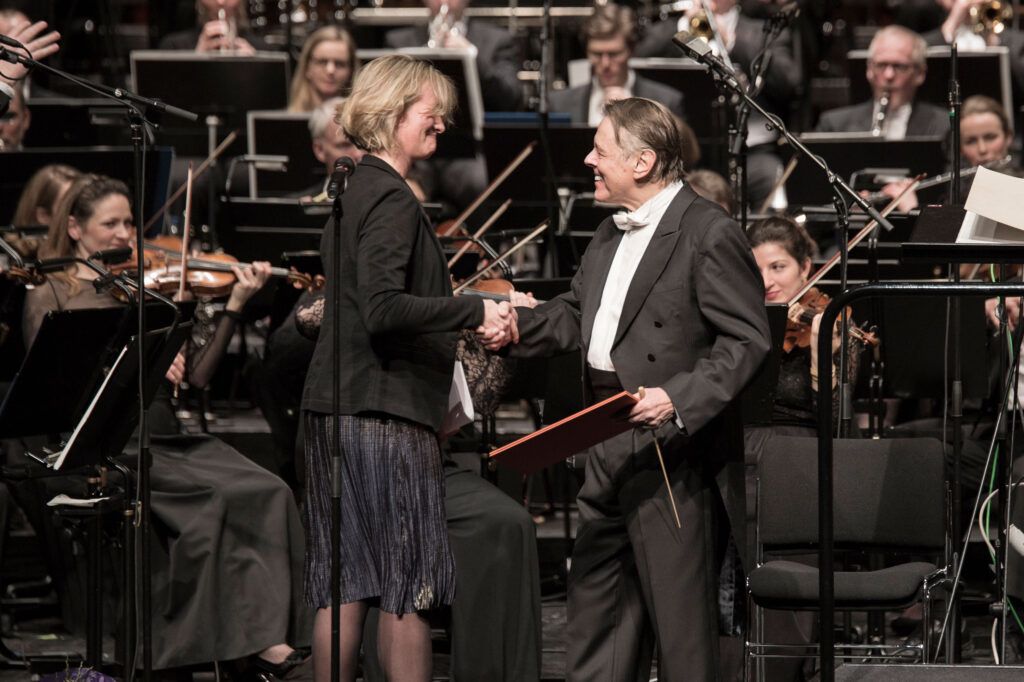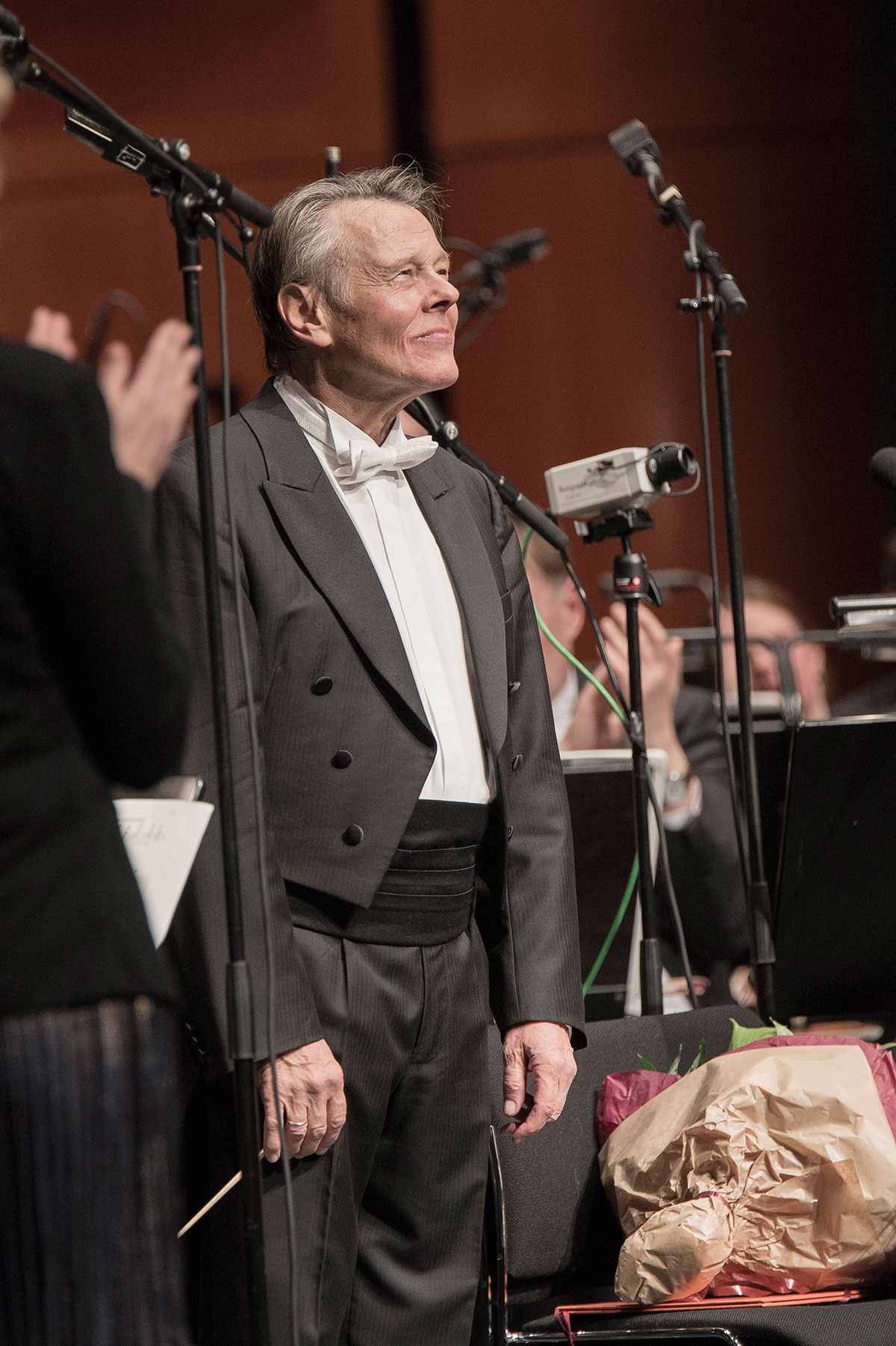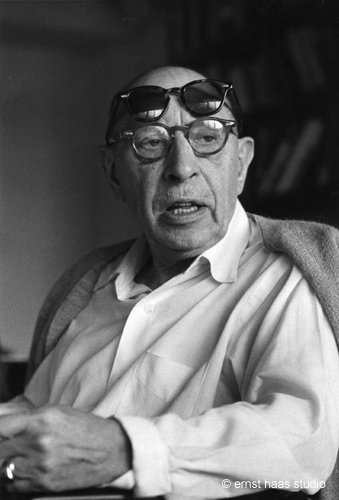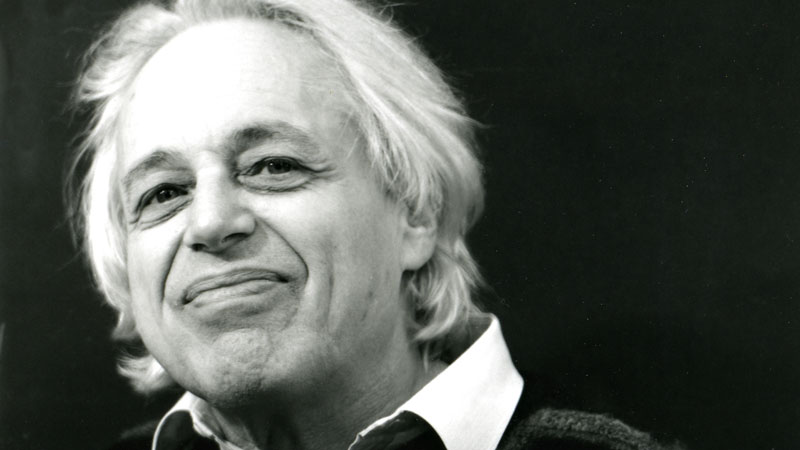Léonie Sonning Music Prize 2018
The Latvian conductor Mariss Jansons received the Léonie Sonning Music Prize of €100,000 during a concert at the Copenhagen Opera House on Friday 9 March, 2018. The concert was broadcast live on the Danish Broadcasting Corporation’s P2 radio channel.
Programme
Mahler Symphony No 2, Resurrection
Participants
Genia Kühmeier, soprano
Bernarda Fink, mezzo-soprano
Chorus of the Royal Danish Opera
Malmö Opera Chorus
The Royal Danish Orchestra
Mariss Jansons, conductor
On Thursday 8 March, the day before the concert, Jansons met conducting students at the Royal Danish Academy of Music in Copenhagen.

Citation
Katrine Ganer Skaug, a member of the Léonie Sonning Music Foundation’s board, presented the €100,000 prize money and gave a personal speech that included the following testimonial:
‘The 2018 Léonie Sonning Music Prize of €100,000 is awarded to Mariss Jansons in recognition of his outstanding work in the field of the symphony orchestra and its repertoire. Jansons has striven on behalf of symphonic music and musicians for decades, revealing the truth of great masterpieces with precision and passion, rendering the music as clear, powerful and meaningful as possible. He has built the orchestras he has led into the most fine-tuned organisms a civilization could hope to produce, and invested our classical music culture with a sense of the sublime.’
Mariss Jansons in Denmark
Mariss Jansons gave his first concert in Scandinavia in 1972 with the Zealand Symphony Orchestra (now known as the Copenhagen Phil). He returned to the orchestra a few times in the 1970s and the early 1980s, conducting repertoire including Richard Strauss’s Ein Heldenleben and Rachmaninoff’s Symphony No 2. He also worked with the South Jutland Philharmonic Orchestra, conducting various works including Tchaikovsky’s Symphony No 6 in 1981.
In February 2011, during his time as Chief Conductor of the Royal Concertgebouw Orchestra in Amsterdam, Jansons and the RCO gave a guest performance at the DR Concert Hall in Copenhagen. The concert included Brahms’s Piano Concerto No 2 featuring Leif Ove Andsnes as soloist, and Beethoven’s Symphony No 7. The newspaper Kristeligt Dagblad wrote that Jansons appeared like ‘a master with his superb overview, clear direction and steely presence,’ while the newspaper Politiken concluded that the concert delivered ‘an experience that will be remembered for years to come and spoken about with musical friends.’
Of the Prize Concert at the Opera House in 2018, the local press wrote the following:
Why the hype about conductors and their white sticks? And why, precisely, is Mariss Jansons worthy of particular attention and a €100,000 fee? The answers come after five seconds in his company. Jansons would be an effective leader in any profession. In the space of a few days he got his 180 instruments of different shapes and sizes blending perfectly. He allowed woodwind, brass, strings and 180 different temperaments to intertwine without the slightest hesitance. And he topped it off with the sense of cohesion that allows singers to enjoy the moment. […]. On occasions such as these, Jansons is a tonic for the connoisseur and the newcomer alike. Take, for example, the waltz that forms the symphony’s third movement. The music appears hushed and rustling for a long period, before breaking out into powerful harmonies with a gesture akin to a cry. Under Jansons’s easy direcetion there was nothing ugly in it, just a thoroughly controlled and even charming sound. And if Mahler’s fourth movement titled ‘Urlicht’ is the most beautiful the composer created and the symphony’s cornerstone, then something even more beautiful was shown to us on Friday. The star of the evening brought that moment to life, allowing us to glance back at everything already heard and, in so doing, sense its importance.
(Søren Schauser, Berlingske Tidende, 10 March 2018)
Maris Jansons is the world’s best orchestra trainer. That much was apparent when the Royal Danish Orchestra played Gustav Mahler’s mighty Resurrection symphony under his titanic leadership. It was a Royal Danish Orchestra concert that will down in the annals of history as one of the most spectacular of recent years. In fact, over the course of the symphony, the orchestra was raised to such a consistent technical level that it surpassed any performance in my memory. In the company of great conductors, the emotions often take over and detail is sacrificed here and there – you accept it for the sake of the bigger picture. What was striking about Jansons’ work with the Royal Danish Orchestra was how accurately and loyally the performance followed Mahler’s myriad instructions concerning tempo, phrasing and dynamics, and how naturally music was born from this fastidious approach. The first movement’s death music, with its mourning marches and recollections of suffering, was taken at a truly majestic pace, utterly profound and solemn. The gloomy ascent of the deep strings was superbly nuanced. The violins’ phrasing of the “remembrance” theme was affectionate and transparent. The moment of disaster halfway through the movement was brought to life formidably in three-dimensions. It continued in the same way under this titan of a conductor.
(Valdemar Lønsted, Information, 13 March 2018)





















